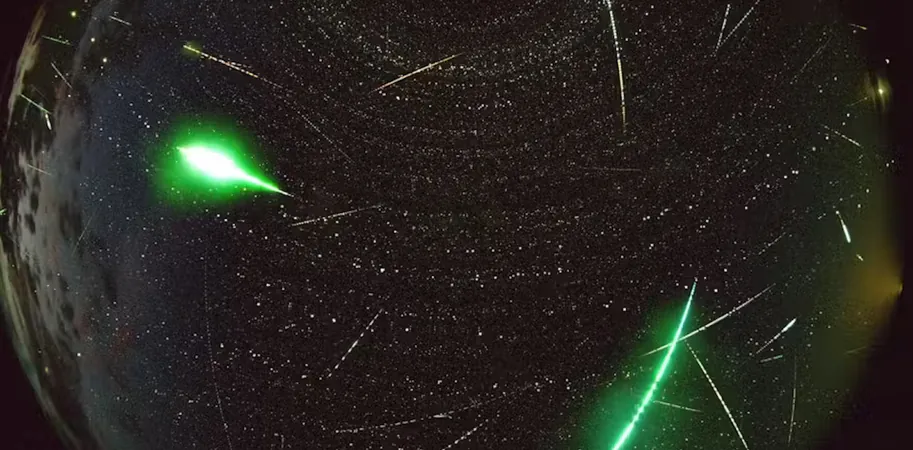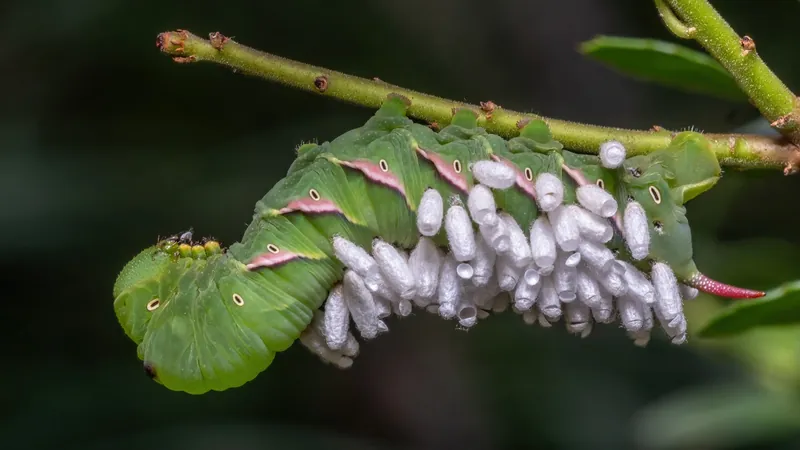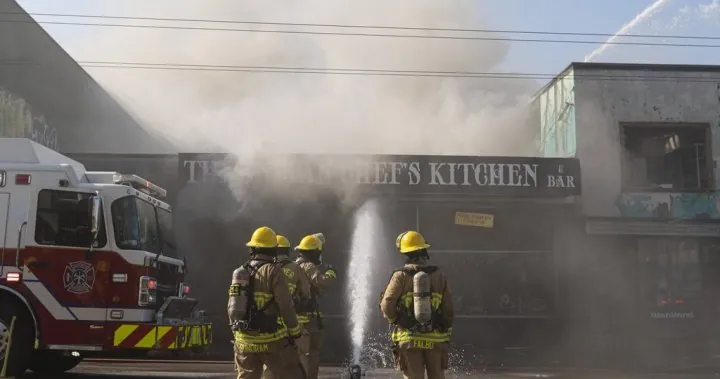
Unveiling the Mystery: Why Earth’s Meteorites Are Drier Than Asteroids Collected by Space Probes
2025-04-14
Author: Jacques
The Ancient Travelers: Meteorites and What They Reveal
Meteorites are our time capsules from the early solar system, delivering secrets from ancient rocks that have endured a fiery descent through Earth's atmosphere. Among these, carbonaceous chondrites are the star players—they are rich in water, carbon, and organic compounds, offering vital clues about the origins of our home planet.
Where’s All the Water? A Surprising Find
While many asteroids are believed to be brimming with water, less than 4% of the meteorites discovered on Earth are carbonaceous chondrites. This paradox has puzzled scientists for years. Recent research published in *Nature Astronomy* has sparked a quest to uncover the whereabouts of these elusive meteorites.
Missions to the Past: Sample-Return Adventures
To bridge the information gap, ambitious space missions like NASA's OSIRIS-REx and JAXA's Hayabusa2 have brought back unaltered samples from asteroids. These pristine samples provide unprecedented insights that help scientists decode the building blocks of our solar system and, perhaps, the genesis of life itself.
The Puzzle of Survival: Why Ignored Carbonaceous Chondrites?
Traditionally, scholars believed that carbonaceous meteorites simply burned up in Earth’s atmosphere due to their flaky and fragile nature. But there’s more at play! Most meteorites originate from asteroid collisions, sending fragments sailing through space—only the strongest survive the trek.
Tracking Cosmic Debris: New Technologies Making Waves
Today, technology is a game changer. With global observation networks like FRIPON and the Global Fireball Observatory, researchers can detect thousands of meteoroids entering Earth’s atmosphere annually. These real-time observations allow scientists to study which asteroids produce the strongest fragments capable of surviving this perilous journey.
Making Sense of the Sun’s Role in the Meteorite Mystery
A shocking revelation: many fragile meteorite pieces likely disintegrate due to intense heat as they orbit closer to the Sun. This thermal cracking diminishes the number of carbonaceous materials that ever reach Earth’s surface, skewing the balance of meteorite types we find.
The Road Ahead: Unlocking More Secrets of Our Cosmic Neighborhood
As scientists aim to refine their techniques and enhance detection methods, we stand on the brink of significant discoveries that could further unravel the mysteries of meteoroid compositions. With each advancement, the enigma of why Earth’s meteorites are drier than their asteroid counterparts may finally be resolved.









 Brasil (PT)
Brasil (PT)
 Canada (EN)
Canada (EN)
 Chile (ES)
Chile (ES)
 Česko (CS)
Česko (CS)
 대한민국 (KO)
대한민국 (KO)
 España (ES)
España (ES)
 France (FR)
France (FR)
 Hong Kong (EN)
Hong Kong (EN)
 Italia (IT)
Italia (IT)
 日本 (JA)
日本 (JA)
 Magyarország (HU)
Magyarország (HU)
 Norge (NO)
Norge (NO)
 Polska (PL)
Polska (PL)
 Schweiz (DE)
Schweiz (DE)
 Singapore (EN)
Singapore (EN)
 Sverige (SV)
Sverige (SV)
 Suomi (FI)
Suomi (FI)
 Türkiye (TR)
Türkiye (TR)
 الإمارات العربية المتحدة (AR)
الإمارات العربية المتحدة (AR)